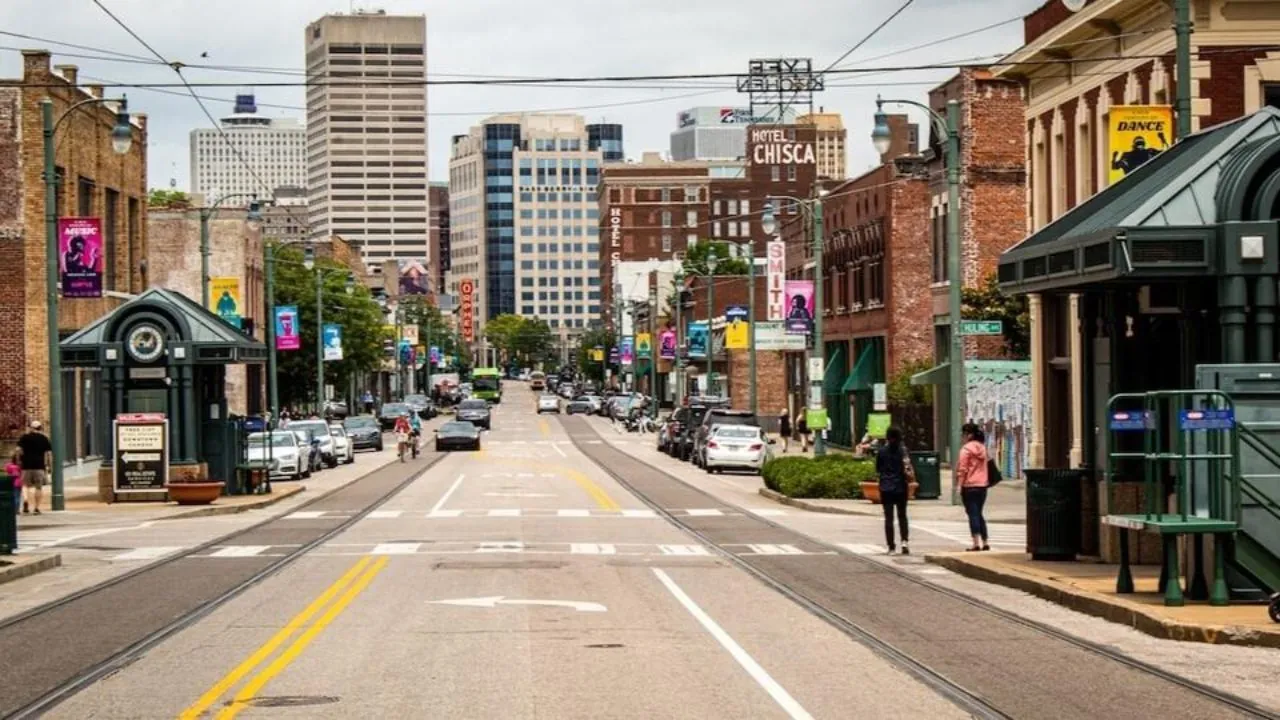Massachusetts, often lauded for its vibrant culture, academic prowess, and historical significance, harbors a hidden story. Beneath the veneer of charming towns and bustling cities lies a stark reality: Springfield, the state’s third largest city, grapples with the weight of being the most depressed city in New England and among the top 16 in the nation. With nearly 25% of its residents experiencing depression, Springfield’s struggle casts a long shadow, prompting us to delve deeper into the causes, consequences, and potential solutions for this pervasive mental health issue.
Source – live959.com, country1025.com
I. The Grip of Depression: Unveiling the Statistics
The grim statistic of 25% depression prevalence in Springfield originates from a study conducted by CEUfast, a resource platform for continuing education professionals. While this figure may seem isolated, it paints a worrying picture when compared to national averages. The National Institute of Mental Health estimates that 8.4% of adults in the United States experienced major depressive episodes in the past year. This stark contrast underscores the severity of Springfield’s situation, where depression affects nearly three times the national average.
II. Diving Deeper: Exploring the Roots
Understanding the causes behind this alarming statistic requires a multi-faceted approach. Several factors, both internal and external, contribute to the high rates of depression in Springfield:
- Economic Woes: The city faces economic challenges, with a poverty rate of 28.7%, significantly higher than the national average of 11.4%. This financial insecurity can lead to stress, anxiety, and ultimately, depression.
- Limited Access to Mental Healthcare: Springfield, like many other communities across the country, faces a shortage of mental health professionals. This lack of access creates a barrier to treatment for those struggling with depression, further exacerbating the issue.
- Social Isolation and Stigma: Social isolation and stigma surrounding mental health are prevalent in Springfield, discouraging individuals from seeking help. This lack of support can worsen symptoms and contribute to a sense of hopelessness.
- Historical Factors: The city’s industrial decline, coupled with a history of racial and economic inequality, has created a legacy of hardship and trauma that can contribute to mental health issues.
III. The Ripple Effect: Consequences of Depression
The impact of depression extends beyond the individual, affecting families, communities, and the economy. Depression can lead to decreased productivity, absenteeism from work, and increased healthcare costs. It can also strain relationships within families and communities, creating a vicious cycle of social isolation and negative mental health outcomes.
IV. Rays of Hope: Potential Solutions and a Path Forward
While the situation in Springfield is undoubtedly complex, it is not insurmountable. Several initiatives and strategies can offer a glimmer of hope and pave the path for a brighter future:
- Investing in Mental Healthcare: Increasing access to mental health professionals and expanding support services are crucial. This can involve initiatives like telemedicine, community-based mental health programs, and culturally competent care.
- Breaking the Stigma: Engaging in public awareness campaigns and normalizing conversations about mental health can help reduce stigma and encourage individuals to seek help.
- Addressing Economic Disparities: Investing in economic development and job creation can improve financial security and reduce stress, contributing to better mental health outcomes.
- Building Community Support: Fostering strong social connections and promoting community engagement can provide individuals with a sense of belonging and support.
Additional Resources:
- CEUfast: https://ceu.edu/
- National Institute of Mental Health: https://www.nimh.nih.gov/health/publications/depression/index.shtml
- MentalHealth.gov: https://www.mentalhealth.gov/
FAQ’s:
Q: Why is Springfield the most depressed city in Massachusetts?
A: Several factors contribute, including economic hardship, limited access to mental healthcare, social isolation, stigma, and historical factors like industrial decline and inequality.
Q: How common is depression in Springfield compared to the US average?
A: Nearly 25% of Springfield residents experience depression, compared to the national average of 8.4%. This means depression affects nearly 3 times more people in Springfield.
Q: What are the consequences of this high rate of depression?
A: Decreased productivity, absenteeism, increased healthcare costs, strained relationships, and a cycle of isolation and mental health issues.
Q: What are some potential solutions to address this problem?
A: Investing in mental healthcare access, breaking stigma through awareness campaigns, tackling economic disparities, and building strong community support networks.
Conclusion: A Call to Action
The high rate of depression in Springfield is a wake-up call, not just for the city but for the nation as a whole. By understanding the causes, acknowledging the consequences, and investing in solutions, we can begin to break the cycle of depression and build a future where mental well-being is a priority. Springfield’s struggle is not an isolated one; it is a reflection of the broader challenges faced by communities across the country. By taking action in Springfield, we can set an example and pave the way for a more compassionate and supportive society for all.
Disclaimer:
The information presented in this article and accompanying FAQs is for informational purposes only and is not intended to be a substitute for professional medical advice, diagnosis, or treatment. Always seek the advice of a qualified healthcare professional regarding any questions you may have about a medical condition.
This disclaimer ensures that users understand the limitations of the information provided and encourages them to seek professional help if needed. Additionally, the image visually reinforces the contrast between depression and hope, further emphasizing the importance of seeking support.

